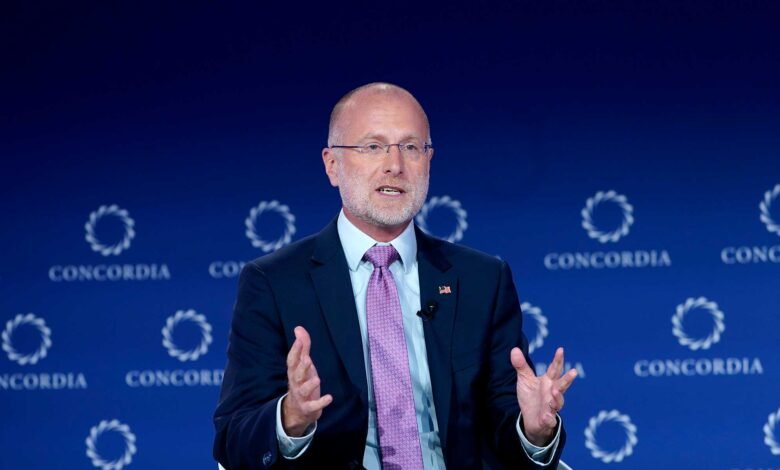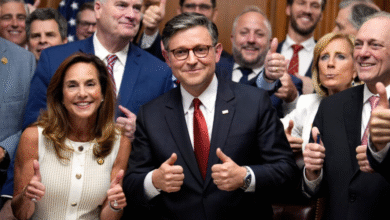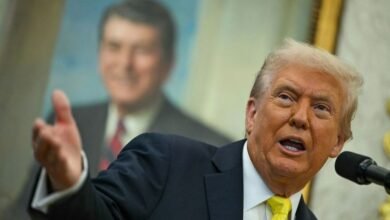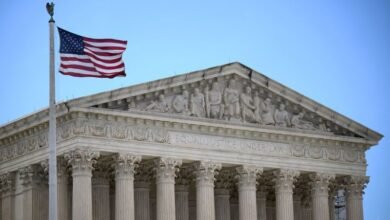The FCC Should Stay Out of Politics

Last week, Federal Communications Commission chairman Brendan Carr gave an unintended gift to all who want the government out of policing speech. During a podcast appearance, Carr suggested that late-night host Jimmy Kimmel should be suspended for remarks about Charlie Kirk’s alleged assassin, and told broadcasters, “we can do this the easy way or the hard way.” In so doing, the chairman reminded everyone of the danger of giving regulators power over the airwaves.
In addition to his recent remarks about Kimmel, Carr has filed several “news distortion” complaints against major outlets since President Trump’s inauguration. He argues that major networks show an anti-conservative bias that requires government oversight. Yet attempts to enforce so-called fairness and equal-time rules have driven much of the FCC’s censorship in the past and have targeted both the Right and the Left. In today’s TV and radio environment, however, a renewed FCC push on fairness would mainly benefit the Left.
The FCC has a long history of targeting opponents of the current administration in the name of fairness. Not long after President Franklin Roosevelt created the FCC, he bullied the commission’s chair, Larry Fly, to act against New Deal foes, whom Roosevelt felt wielded excessive media influence. In 1941, the FCC allowed a Boston radio station to keep broadcasting only after it effectively promised to silence Roosevelt critics. The commission later explained that broadcasters had a duty of “presenting all sides of important public questions, fairly, objectively, and without bias.”
Eight years later, the commission formalized this approach as the Fairness Doctrine, requiring broadcast-license holders to present both sides of any controversial issue. In its early years, the rule was applied almost exclusively against the Right.
Liberal leaders have long used the FCC to advance personal and political aims. Lyndon Johnson, for instance, built his fortune by cultivating ties with FCC officials who approved the expansion of his wife’s radio station. Ahead of the 1964 presidential election, the Democratic National Committee created a team to petition pro-Barry Goldwater stations to provide equal pro-Johnson airtime, citing the Fairness Doctrine.
The Kennedy-era FCC tried to “harass right-wing broadcasters and hope that the challenges would be so costly to them” that stations would block conservative commentators altogether, according to a former Commerce official. President Ronald Reagan understood this background and, despite some concerns about leftward media bias from the Republican Party, oversaw the FCC’s decision in 1987 to end the Fairness Doctrine.
Today, the FCC’s broadcast rules apply primarily to local TV and radio stations, the media sectors with the strongest conservative presence. The largest owners of local stations, Nexstar and Sinclair, have mostly faced attacks from the Left. Nexstar also owns the channel NewsNation, which faced staff defections due to its supposed right-leaning coverage and which recently hired a former Fox News bureau chief as its president. Sinclair Broadcasting has long been a bête noire of liberals due to its habit of sending “must-run” video segments, supposedly harboring right-wing views, to owned stations.
Though local TV stations carry network programming like NewsNation or ABC, their main profit center is local news. An average of 25 million people watch local TV news nightly. Even the top-rated cable news shows average only a few million viewers at any one time. Polls show that Americans think local news is far more trustworthy, and much less likely to be left-leaning, than national news. If the FCC is going to pressure local TV stations to abandon political bias, it will end up attacking one of the few sectors with significant conservative influence.
A modern fairness rule applied to radio would endanger one of the conservative movement’s core platforms: talk radio. Rush Limbaugh’s rise owed much to the termination of the Fairness Doctrine. According to one estimate, over 90 percent of all political and talk radio today leans conservative. Were the FCC to reenter radio politics, it would find mostly right-leaning targets.
Republican senators David McCormick, Rand Paul, Ted Cruz, and others across the political spectrum have condemned Carr’s remarks, and rightly so. The government has no place in policing programming. Though a renewed insistence on fairness in broadcasting sounds enticing, in practice it would become just another tool of censorship—one that, in the long run, will likely be used against conservatives even more than liberals.
Photo by John Lamparski/Getty Images for Concordia Annual Summit
City Journal is a publication of the Manhattan Institute for Policy Research (MI), a leading free-market think tank. Are you interested in supporting the magazine? As a 501(c)(3) nonprofit, donations in support of MI and City Journal are fully tax-deductible as provided by law (EIN #13-2912529).
Credit: Source link






